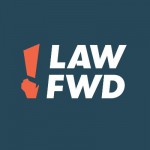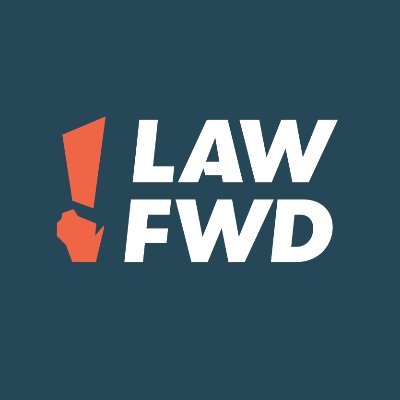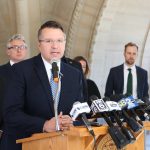Law Forward’s “Redistricting 101” Provides Much-needed Overview of Critical but Complicated Process
New Report Breaks Down Redistricting Process In Plain English; Explains Its Importance
MADISON, WI. APRIL 15 — “I have been talking about redistricting with everyone from members of the legislature and activists to my family and friends. And two things have become clear to me. First, most people understand the importance of the redistricting process. And second, very few people understand how it works and, critically, how it will unfold in Wisconsin this year with divided government, census delays, and increased public interest.”
The result is “Redistricting 101: What We Talk About When We Talk About Maps,” a new background paper by Barnes being released today.
“Redistricting is far too important to play out in the shadows,” noted Barnes. She added, “I wanted to write something that would help everybody understand the process, since everybody is impacted by it.”
The report is available free of charge at lawforward.org/redistricting-101
Written in clear and plan English, this comprehensive report:
- Summarizes the history and purpose of redistricting.
- Discusses the abuse of the system through partisan gerrymandering.
- Explains the process by which Wisconsin makes its redistricting decisions.
- Details the legal and constitutional issues raised by redistricting, including how some schemes undermine fundamental principles such as “one person, one vote.”
- Provides a timeline for the redistricting process.
- Includes a glossary to explain some of the less-familiar terms, as well as a list of resources.
Publication of the report was greeted with enthusiasm:
Carlene Bechen, lead organizer with the Wisconsin Fair Maps Coalition, noted, “Redistricting 101 will be a powerful tool in helping our volunteers understand the redistricting process and where they can make an impact. We are grateful to Mel and Law Forward for this important resource.”
NOTE: This press release was submitted to Urban Milwaukee and was not written by an Urban Milwaukee writer. While it is believed to be reliable, Urban Milwaukee does not guarantee its accuracy or completeness.
More about the Gerrymandering of Legislative Districts
- Without Gerrymander, Democrats Flip 14 Legislative Seats - Jack Kelly, Hallie Claflin and Matthew DeFour - Nov 8th, 2024
- Op Ed: Democrats Optimistic About New Voting Maps - Ruth Conniff - Feb 27th, 2024
- The State of Politics: Parties Seek New Candidates in New Districts - Steven Walters - Feb 26th, 2024
- Rep. Myers Issues Statement Regarding Fair Legislative Maps - State Rep. LaKeshia Myers - Feb 19th, 2024
- Statement on Legislative Maps Being Signed into Law - Wisconsin Assembly Speaker Robin Vos - Feb 19th, 2024
- Pocan Reacts to Newly Signed Wisconsin Legislative Maps - U.S. Rep. Mark Pocan - Feb 19th, 2024
- Evers Signs Legislative Maps Into Law, Ending Court Fight - Rich Kremer - Feb 19th, 2024
- Senator Hesselbein Statement: After More than a Decade of Political Gerrymanders, Fair Maps are Signed into Law in Wisconsin - State Senate Democratic Leader Dianne Hesselbein - Feb 19th, 2024
- Wisconsin Democrats on Enactment of New Legislative Maps - Democratic Party of Wisconsin - Feb 19th, 2024
- Governor Evers Signs New Legislative Maps to Replace Unconstitutional GOP Maps - A Better Wisconsin Together - Feb 19th, 2024
Read more about Gerrymandering of Legislative Districts here
Recent Press Releases by Law Forward
Voting Rights Groups, Wisconsin Voters Challenge Trump Administrations Unwarranted Grab for Private Data
Jan 9th, 2026 by Law ForwardGroups File Motion to Intervene in U.S. Department of Justice Lawsuit Against Wisconsin Elections Commission





















